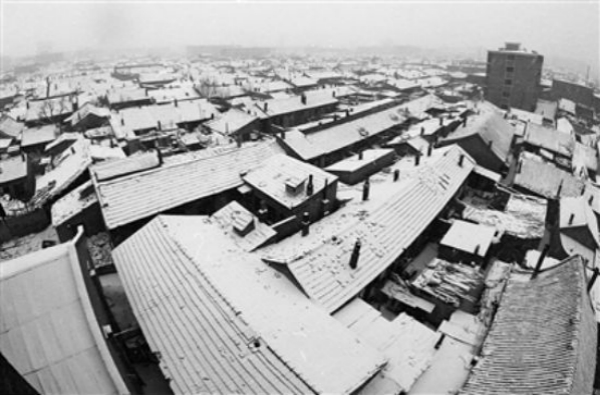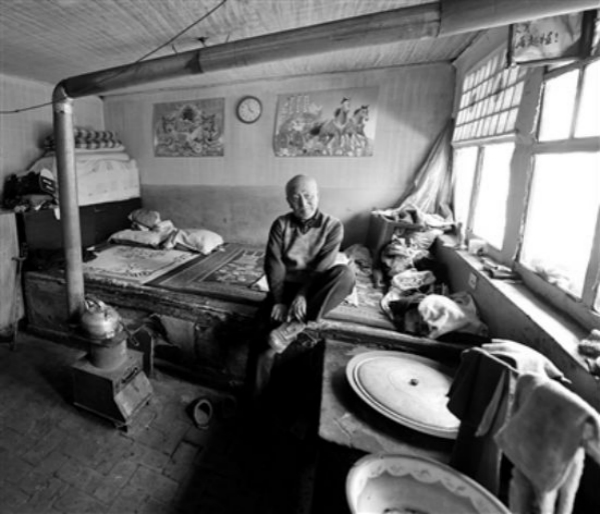Inner Mongolia housing sees 4 decades of changes
In the past 40 years, Hohhot residents' living environments have undergone enormous changes. Going from the brick and tile bungalows that people lived in in the 1960s to the mass-produced flats of the 1980s, to the elegant gardens and perfect property services of today's high-rise communities and villas, the residential spaces of Hohhot residents are always becoming more spacious, environmentally friendly and comfortable.
Before the founding of Inner Mongolia autonomous region, the living conditions of local people were very uncomfortable. Most of the urban dwellings were simple bungalows with narrow living areas and simple amenities, without kitchens, toilets, running water and other conveniences; most of the rural dwellings were adobe houses or even thatched huts; herdsmen lived where the water and grass were abundant, with poor sanitation and heating.

A photo shows the simple bungalows of local residents. [Photo/hhhtnews.com]
At the beginning of Inner Mongolia's liberation, housing construction lagged behind housing demand. The total housing area in cities and towns was only 4.19 million square meters, which was only 2.5 percent of the combined residential area in 2016.

Before the 1990s, local residents had to use a stove to burn coal for heating and there was no kitchen, toilet, running water or other conveniences in most homes. [Photo/hhhtnews.com]



 Print
Print Mail
Mail


